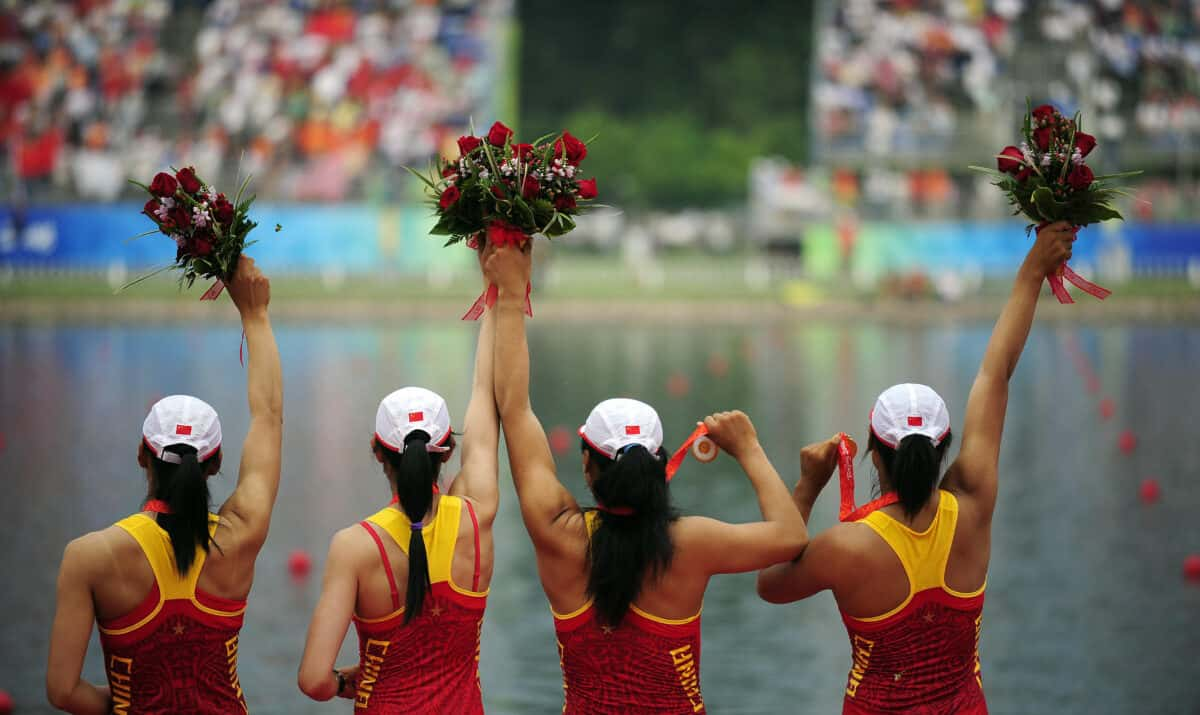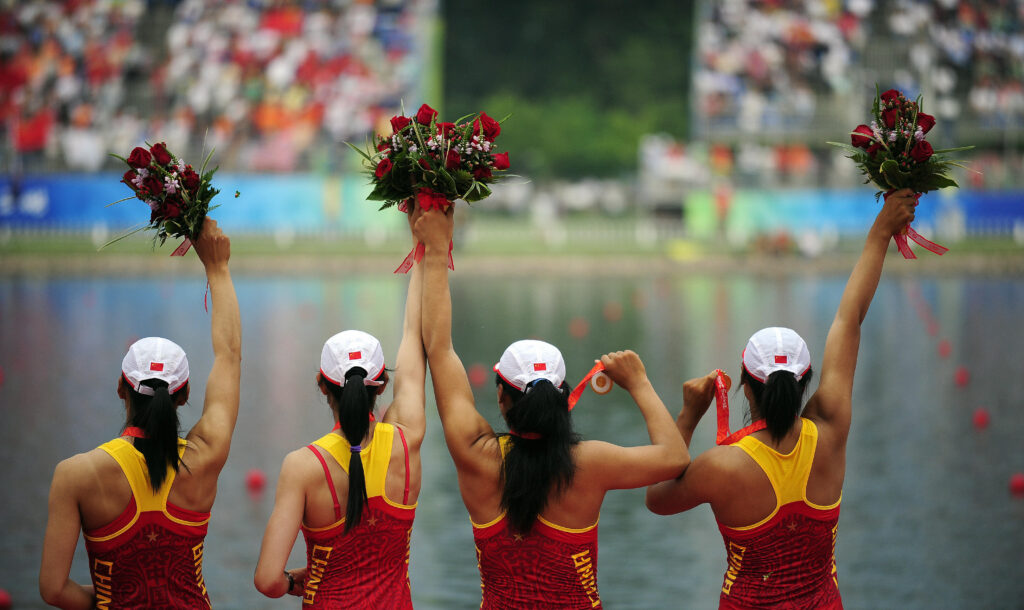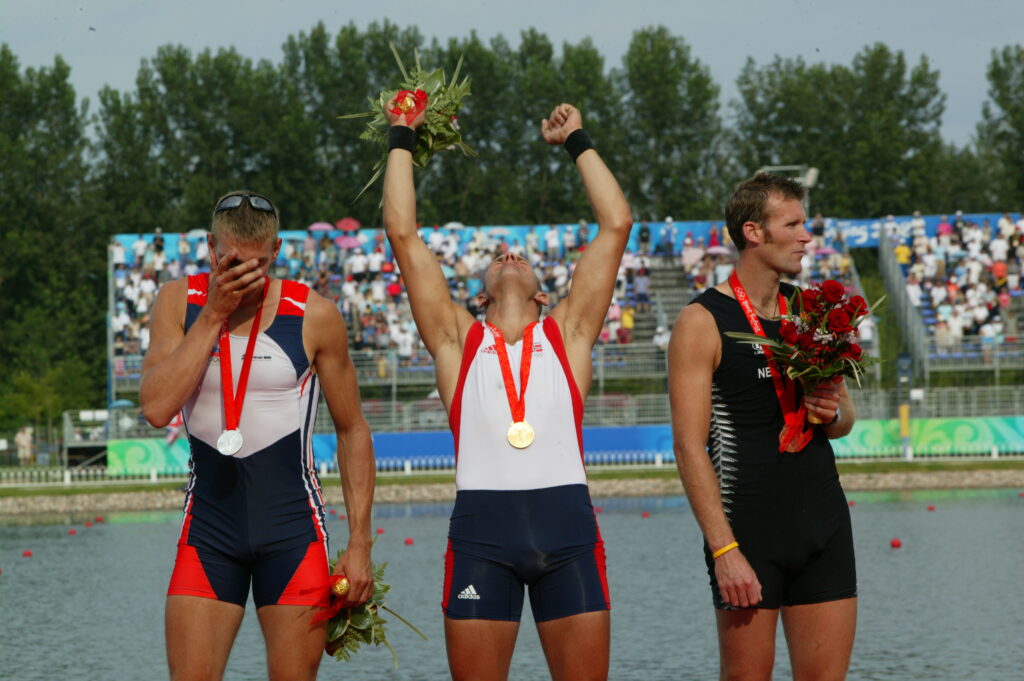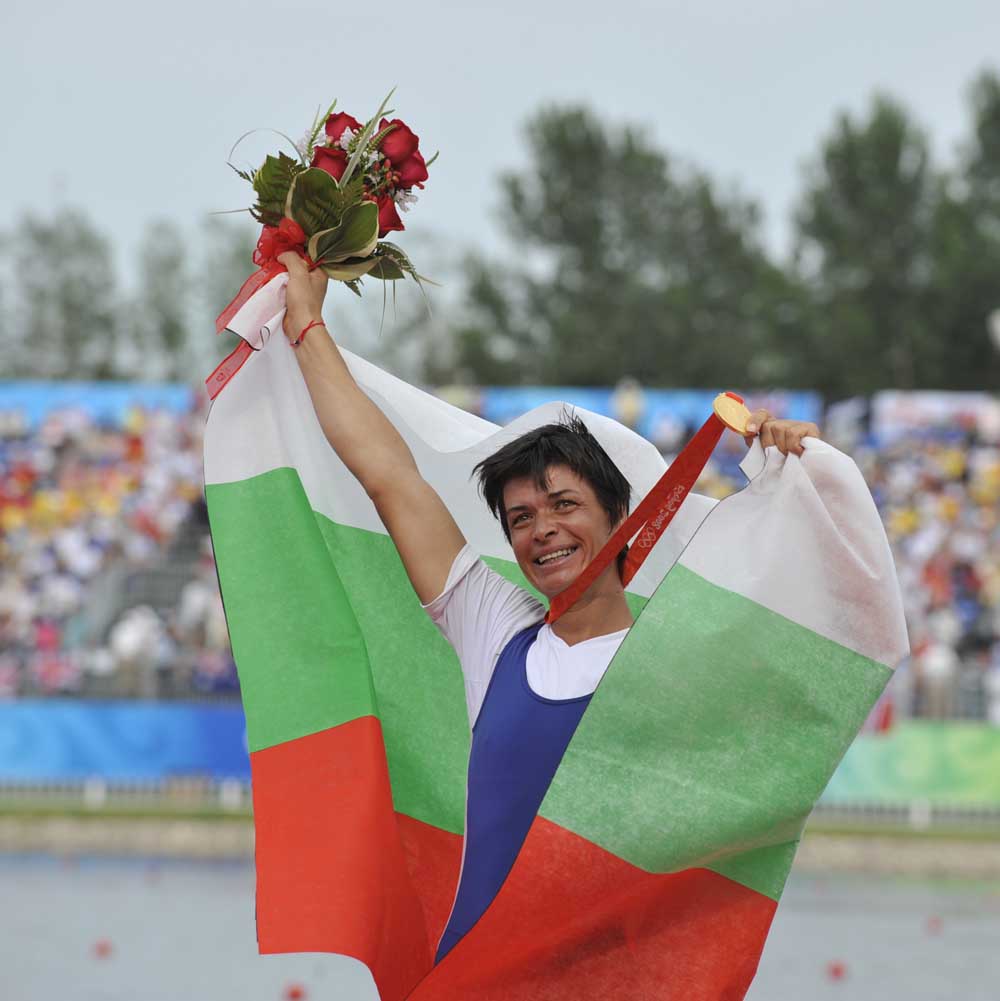
04 Jul 2024
Olympic Rewind: Beijing 2008 - Flying rowing’s flag in the far East
Rowing at the Beijing 2008 Olympic Games took place from 9-17 August at the Shunyi Rowing-Canoeing Park, a venue built for the competition. It remains in use as a training centre and venue for various events.
As in the previous Olympic Games, Beijing 2008 featured eight men’s and six women’s rowing events.
A total of 60 nations were represented by 555 athletes, with 20 countries winning a medal. That included 12 nations winning gold medals. Great Britain topped the medal table, as their streak of fortune at the Olympic Games began, with two medals of each colour, including a third consecutive gold in the men’s coxless fours.
Key moments

China puts on a show
China had been preparing for the Beijing Olympics for some time, and wanted to show the world they were a serious rowing nation. They came away with two medals, and a number of finalists. The medals came in the women’s quadruple sculls and women’s pair, with a good gold in the former event over Great Britain and Germany, and silver in the latter, behind the ever-dominant Romanians. The victory in the quad came after China rowed through Great Britain in the last 500m to deny the British their first-ever women’s rowing gold. Three of the women’s quadruple sculls crew would be back for the London 2012 Olympic Games, where they finished fifth. But the regatta was a success in spectator terms, with crowds lining up to cheer on the crews throughout the competition.
Thunder and lightning stop play
Water and storms do not mix, as any rower knows, and thundery conditions throughout the week of the regatta forced several changes in schedule. The men’s and women’s eights heats were postponed from day 2 to day 3 due to thunderstorms, and then the whole of the fifth day of racing was suspended “due to continued electrical storm activity”. Luckily, by the two finals days, conditions were immaculate with glassy water and fair conditions for racing.

Battling through illness
A number of rowers were substituted through the course of the regatta due to illness, with a stomach bug running rife through the boat park. Many lost their chance to race for an Olympic medal, but New Zealander Mahe Drysdale battled through and claimed bronze in the men’s single sculls, behind Norway’s Olaf Tufte and Ondrej Synek of Czechia. Drysdale went out hard and had a length’s lead at 1500m, but Tufte and Synek just had more in the last 500m and came through the Kiwi. Drysdale was spent on the pontoon and said later that he had lost 4kg during the week and still cannot remember the last 100m of the race.

Neykova finally wins gold
It had been a long time coming, but in Beijing Bulgarian Rumyana Neykova finally grabbed the Olympic gold medal which had so far eluded her. Neykova was second in a photofinish to the great Belarusian Ekaterina Karsten at the Sydney 2000 Olympic Games, and third behind Germany’s Katrin Ruschow and Karsten in Athens. But in her fourth Olympics, everything came right. The world best time holder won her heat and quarterfinal, and was a close second to Karsten in the semifinal. In a super-tight final, Neykova was patient and allowed Karsten and Czechia’s Mirka Knapkova to lead out before moving through Karsten in the middle of the race and then attacking Knapkova, who faded into fifth. Neykova retired the following year, with a final world championship bronze medal in the women’s double sculls.
Rowing’s flagbearers
After Elisabeta Lipa won her fifth Olympic gold medal at Athens 2004, Georgeta Damian-Andrunache joined her in Beijing. Damian-Andrunache doubled up in the women’s pair and eight at the Sydney, Athens and Beijing Olympic Games, winning double gold at the first two regattas and a gold and bronze in Beijing. The gold in China came from the pair, with Romania finishing third in the eight. Damian-Andrunache, Lipa and Great Britain’s Steve Redgrave remain the only rowers with five Olympic gold medals. She carried her national flag at the closing ceremony, alongside New Zealand’s women’s double sculls champions Caroline and Georgina Evers-Swindell, and Hong Kong, China’s Hiu Fung Law.

